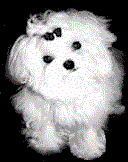

- Phone
- Email puppypetite@aol.com
-
Address
8002 17th Ave, Brooklyn NY 11214

Yorkie Puppy Potty Training Preparation and Housebreaking Basics
The Yorkshire Terrier, affectionately known as a Yorkie, is a small dog breed of terrier type, developed during the 19th century in Yorkshire, England, hence its name. Renowned for their small size, averaging between 4 to 7 pounds, they are known to be bold, energetic, and adventurous pets despite their petite build. Yorkies carry a well-proportioned body, and their trademark trait is their beautiful, silky coat, which often comes in shades of blue and tan.
These dogs are more than just their looks; they are packed with personality and character. Yorkies are known for their intelligent, lively, and affectionate nature. They form strong bonds with their families and often assume themselves to be bigger than they actually are, which can sometimes lead them into trouble. However, with adequate training and socialization, Yorkies can make fantastic, charming companions that fit well into different living situations, including apartments and larger homes.


Preparation In Potty Training a Yorkie Puppy
Potty training a Yorkshire Terrier puppy requires patience, consistency, and understanding. The process can be challenging due to their small size and energetic personality, but with the right steps, it's entirely manageable.
- Create a Schedule: Establish a regular feeding schedule for your Yorkie puppy. Regular feeding times lead to predictable potty times, making it easier to anticipate when your puppy will need to go out.
- Designate a Potty Area: Choose a specific area in your yard or on your patio where you want your Yorkie to do its business. Consistency will help your puppy understand where it's appropriate to go.
- Use Positive Reinforcement: Whenever your Yorkie successfully uses the designated potty area, reward them with praise, treats, or a short playtime. This reinforcement makes them more likely to repeat the behavior in the future.
- Be Patient and Consistent: Puppies have short attention spans and may not always remember the rules. Stay patient, provide lots of opportunities for success, and always respond in a consistent manner.
- Keep Your Puppy in Sight: If possible, keep an eye on your puppy at all times when indoors. This will allow you to spot signs that they need to go out and prevent accidents before they happen.
- Accidents Happen: Be prepared for accidents when potty training your Yorkie puppy. When they occur, do not scold or yell at your puppy as this can lead to fear and anxiety. Instead, clean up the mess calmly and continue with the training process.
- Gradual Independence: While it may be tempting to give your Yorkie full freedom after a successful potty training, it's essential to gradually increase their independence. This will help reinforce good potty habits and prevent any backsliding.
- Celebrate Success: Once your Yorkie is fully potty trained, celebrate this achievement with them! Give them extra treats and praise for reaching this milestone.
Yorkies are highly intelligent and eager to please, making them relatively easy to train. However, as with any puppy, consistency and patience are key when it comes to potty training. By following these tips, you'll be one step closer to having a well-trained Yorkie puppy that is both happy and healthy. And remember, the bond formed between a Yorkie and its owner during potty training can lay the foundation for a strong and loving relationship for years to come.
Successfully potty training your Yorkie puppy is a significant achievement and a crucial step in building a harmonious relationship with your new furry friend. Remember, every puppy is unique and may take more or less time to be fully potty trained. Celebrate the small victories along the way and stay committed to the process - your patience and consistency will eventually pay off.
Housebreaking Basics
Housebreaking a Yorkie, or any puppy, is a vital part of their early training and socialization. It's a process that helps the puppy understand where to eliminate and where not to, encouraging habits that promote cleanliness and respect for the living environment. While it may seem daunting, especially for first-time dog owners, understanding the basics of housebreaking can make the process smoother and more effective.
- Choose a Method: There are different methods for housebreaking, each with its own advantages and disadvantages. Crate training, for instance, uses the puppy's natural instinct not to soil their sleeping area. Paper training is another method where the puppy is trained to eliminate papers placed in a designated area inside the house.
- Establish a Routine: Dogs thrive on routine. Feeding, playtime, and sleep should all occur at consistent times to help your puppy understand what to expect and when. This routine will also make it easier for you to anticipate when your puppy will likely need to be eliminated.
- Monitor and Supervise: Keep a close eye on your puppy during the housebreaking period to catch and correct mistakes immediately. Supervision can also prevent accidents by allowing you to notice the signs that your puppy needs to go out.
- Positive Reinforcement: Puppies respond well to positive reinforcement, including treats, praise, and playtime. Whenever your puppy eliminates in the designated area outside or on their papers inside, reward them immediately to reinforce the behavior.
- React Appropriately to Accidents: When accidents happen, react calmly. Scolding or punishing the puppy can create fear and confusion, hindering the training process. Instead, clean the area thoroughly to remove the smell and discourage future accidents in that location.
- Gradually Extend Freedom: As your puppy becomes more reliable in their housebreaking, you can slowly extend the areas of the house they have access to. This graduation should be done incrementally and only when the puppy has shown consistent success.
Housebreaking your Yorkie puppy is an investment in your future together. It creates a clean, comfortable environment for both of you and sets the stage for future training and development. Remember, successful housebreaking requires patience, consistency, and positive reinforcement. Even if it seems challenging at times, the rewards of a well-trained companion are well worth the effort.
